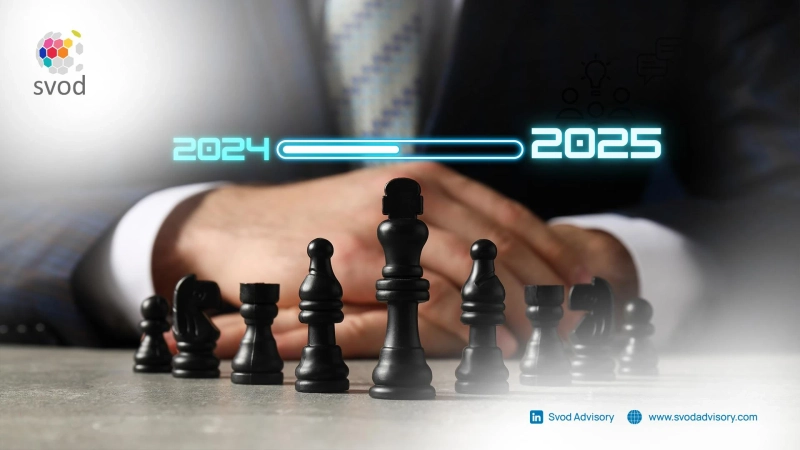Are you a CEO, founder, or CFO? If yes, you likely felt the pressure rising around sustainability and corporate governance. And yes, you are right, ESG is no longer a niche concern; it has become one of the most material forces shaping global business strategy and investment decisions.
Numbers never lie:
- 88% of institutional investors factor ESG performance into their investment decisions (McKinsey, 2023).
- Over $41 trillion in global assets were managed with ESG criteria by the end of 2022, and the figure is still climbing (Bloomberg).
- More than 600 ESG-related regulations have been passed globally since 2018 (ESG Book, 2024).
- In India, SEBI’s BRSR framework is now mandatory for the top 1,000 listed entities, signaling a growing regulatory trend that is also affecting unlisted companies and MSMEs.
It’s no longer about “should we care about ESG?” The new (and real) question is:
How do we do it well, and who can guide us in this process?
Choosing the right ESG consultant is not just about ticking boxes on your strategy checklist. It’s about building credibility, reducing long-term risk, and uncovering competitive advantage. And frankly, a bad hire can cost you more than doing nothing at all. outsourcing accounting
Let’s break down how to choose the right ESG partner with clarity, confidence, and strategic thinking.
Get clear on your goals before onboarding anyone.
Don’t start with the consultant. Start with your company.
- Are you trying to comply with reporting requirements?
- Are you preparing for a funding round or IPO?
- Are you setting net-zero targets or aligning with global frameworks, such as the TCFD, GRI, or IFRS Sustainability Standards (S2)?
- Or are you integrating ESG deeply into operations, supply chains, or investor decks?
These are very different objectives and require different expertise. A great strategist may not be the best person to run your emissions inventory. A climate disclosure expert may not be able to help you engage your employees meaningfully on diversity or workplace equity.
A not-so-successful story:
A European manufacturer operating in India hired a carbon-focused ESG consultancy to help with BRSR reporting. The consultant delivered detailed Scope 1 and 2 calculations but failed to include any metrics around labor practices or human rights, both of which were flagged during due diligence for a major partnership.
In short, your roadmap will define your consultant, not the other way around.
Seek consultants with multidisciplinary know-how.
The best ESG advisors blend strategy, operations, and, of course, reporting. They understand financial materiality and reputational risk. They can talk to both your auditors and your HR team.
Here’s what that means in practice:
Expertise
What to look for
Strategy
Capability to define ESG priorities based on your business model, growth plans, and stakeholder expectations
Reporting
Fluency in GRI, SASB, TCFD, IFRS S1/S2, CSRD, BRSR
Technical expertise
Carbon accounting, supply chain mapping, and DEI metrics
Change management
Internal training, stakeholder engagement, board buy-in
Compliance
Track record with regulatory filings, audits, and data governance
Our tip?
Request to review past deliverables (redacted if necessary), not just a list of clients.
Prioritize real-world impact over glossy presentations.
ESG has, unfortunately, attracted a wave of consultants who prioritize form over function. They’ll build slick reports and pretty dashboards, but when regulators or investors ask for substantiation, things fall apart.
Ask yourself a few of these tough questions:
- Can you share a story of how your work reduced risk, improved valuation, or enhanced stakeholder trust?
- How do you ensure data accuracy and audit readiness?
- What happens after the strategy is done; do you support implementation?
Avoid greenwashers. The right consultant will also be transparent about what they cannot do.
Global name or local expert? It depends.
Many global firms have strong ESG credentials, but their India teams (or Southeast Asia arms) may be limited to report writers or salespeople. Conversely, a boutique firm with deep regulatory and cultural knowledge may be better placed to guide actual transformation.
If you’re a global company operating in India, make sure your consultant understands:
- SEBI’s BRSR mandates
- Labour law intersects with ESG (e.g., POSH Act)
- Local utility and waste data sources
- India-specific ESG benchmarks like NIFTY 100 ESG or BRSR Core indicators
If you’re an Indian company going global, you’ll need help aligning with:
- CSRD (for operations in or tied to the EU)
- TCFD and CDP (especially for export-driven sectors)
- ISSB’s IFRS S1 and S2
Choose based on your footprint and ambition, not just brand name.
Don’t overlook the question of cultural fit.
This may sound soft and corny, but it's definitely not. ESG transformation touches every part of your business. The consultant you hire will likely work with your CXOs, department heads, legal, finance, and even junior teams.
So ask yourself:
- Do they speak your language, both literally and figuratively?
- Can they push without alienating?
- Do they bring empathy along with expertise?
One CHRO mentioned to our team after we ran an ESG training: We’ve had big firms run these sessions before, but this was the first time our team felt understood and inspired to change.
That’s the difference between compliance and transformation.
Ask for proof, avoid empty promises.
An ESG consultant isn’t just a vendor. They’re a long-term partner, often shaping how the world sees your business.
Before you sign any agreement, you must get proof of credibility:
- Client references (ideally in your industry or region)
- Certifications (e.g., GRI-certified professionals, ISO14064 for GHG accounting, or IFRS-accredited advisors)
- Sample frameworks, dashboards, and reports
- Previous success stories: cost savings, risk mitigation, improved ESG ratings, investor feedback
Red flag: If they say, “Yes, we’ll figure it out as we go,” it means they are not ready.
Deliverables, timelines, and ownership should be crystal clear.
Vague contracts lead to ambiguous results.
Define everything possible up front:
- What exactly are they delivering? (e.g., materiality matrix, GHG inventory, stakeholder survey, ESG report, policies, training decks)
- What’s the timeline?
- Who owns what?
- How will success be measured?
Include checkpoints. ESG work is iterative, but that’s no excuse for scope creep or fuzzy outputs.
Don’t confuse ESG tech platforms with consulting.
A quick caution: there’s a growing market of ESG tools that swear they will “automate your ESG.” While these are useful for reporting and data consolidation, they are not a replacement for human expertise, especially in strategy development and change management, and you should remember that tech is an enabler, but certainly not a team player.
Cost versus value: What is a fair ESG consulting fee?
Fees can vary based on geography, expertise, and scope. Here’s a rough idea:
Type of Engagement
Price Range (USD)
BRSR/GRI report for a mid-sized company
$5,000 – $15,000
Full ESG strategy (6–12 weeks)
$20,000 – $60,000+
Carbon footprint & net-zero roadmap
$15,000 – $50,000+
IFRS/TCFD alignment
$30,000 – $100,000+
Good consultants don’t just cost money: they help you make money, attract investors, reduce risks, and future-proof your operations. Don’t lowball. ESG is a strategic investment, not a to-do list.
Bonus: Use this ESG consultant checklist
Here’s a quick way to vet your shortlist.
Question Yes / No
→ Do they have a deep understanding of your industry and region?
→ Can they explain ESG in clear, practical terms to your team?
→ Did they work with organizations of a similar size before?
→ Do they offer both strategic and operational support?
→ Are they familiar with relevant reporting frameworks?
→ Can they show past outcomes, not just activity?
→ Are they culturally aligned with your team?
→ Do they offer post-project support or implementation help?
If you tick 6 out of 8, you’re on the right track.
ESG is no service; it’s a radical change towards better ways of doing business
Hiring the right ESG consultant is one of the most important strategic decisions your organization can make in this decade. Done right, it can unlock capital, attract top talent, reduce legal risks, and position your brand as a leader in an ever-evolving world.
However, it is essential to keep in mind that a great ESG journey begins with clarity. Be honest about your goals, deliberate about your selection process, and rigorous in your approach to outcomes. Because the world isn’t waiting.
About the author:
Marie-Hélène Lapina, an ESG strategy expert at SVOD Advisory, a business consulting firm that supports global organizations across various sectors to turn sustainability into strategy, contributed to this article. Headquartered in Delhi, SVOD Advisory partners with forward-thinking businesses to drive lasting change by unlocking regulatory readiness to investor engagement.


